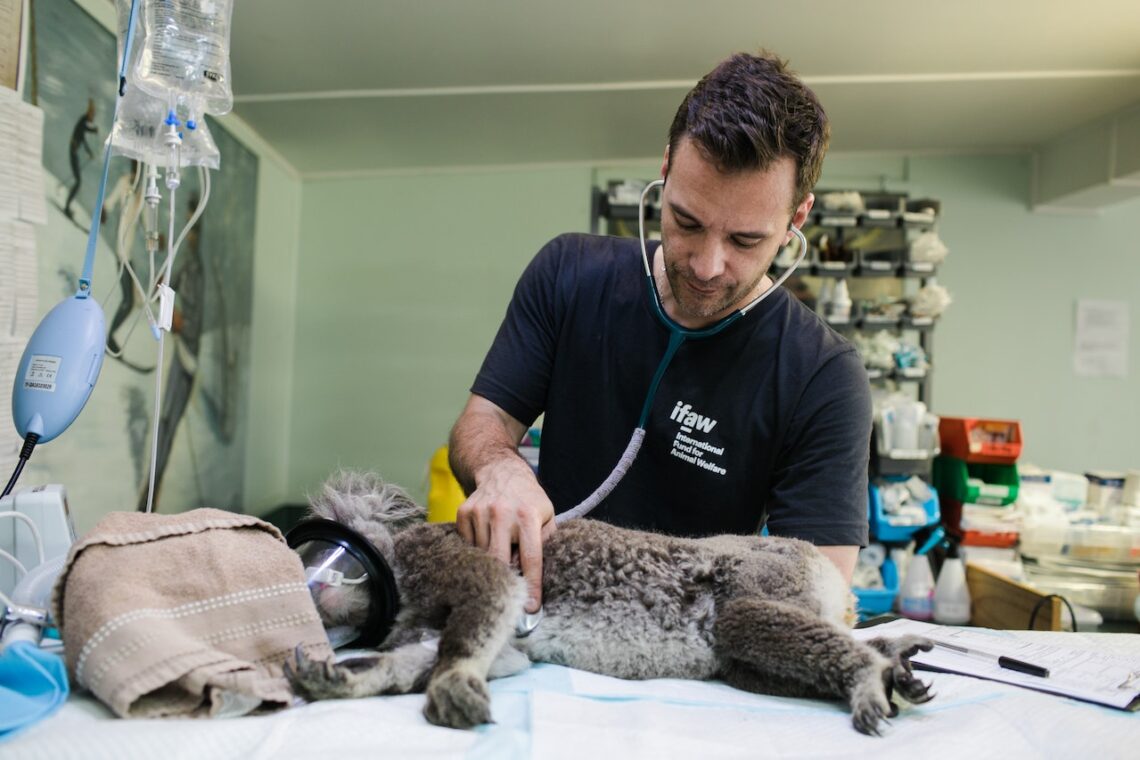
Engaging And Interesting Facts About Veterinarians
Interesting Facts About Veterinarians
A veterinarian is also known as a veterinary surgeon or veterinary physician, but let’s discover more interesting facts about Veterinarians, keep reading.
Veterinary medicine is a branch of science that deals with the diagnosis, prevention, and treatment of animal diseases. It covers a wide range of topics from immunology and microbiology to nutrition and animal husbandry.
The term veterinarian comes from the Latin word veterinae which means ‘working animals’.
10 interesting fun facts about veterinary professionals
In the United States, there are about 85,000 practicing veterinarians. This includes both small and large animal practitioners.
The majority of veterinarians are employed in private clinical practice, treating companion animals such as dogs, domestic cats, and other small mammals.
Veterinarians must complete a 4-year undergraduate degree program followed by a 4-year professional veterinary medicine program.
Veterinary medicine is one of the oldest medical professions. The first known veterinarian was an Egyptian named Imhotep, who lived around 2700 BC.
The first veterinary school was the Royal Veterinary College, founded in 1791 in London.
The oldest veterinary college still operating is the University of Pennsylvania School of Veterinary Medicine, founded in 1884.
In 1761, Vincenzo Lancisi created a chair of comparative anatomy at the University of Rome.
In 1876, the first vet school in the United States was founded by William D. Moseley at Cornell University in Ithaca, New York. Since then, 28 others have been established.
In Canada, the first veterinary school was founded in 1907 by the University of Alberta.
In Asia, the first veterinary school was the Shanghai Veterinary College, founded in 1879.
Veterinarians Take an Oath
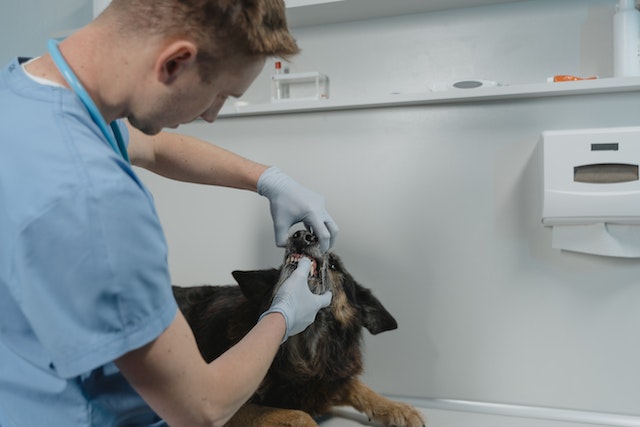
There are many interesting facts about veterinarians, but did you know that they take an oath? That’s right – veterinarians pledge to uphold the highest standards of animal care and to always put the welfare of their patients first.
The oath that veterinarians take is known as the “Veterinarian’s Creed”. The creed is not just for new graduates, but rather, it is an oath that every veterinarian takes throughout their entire career.
The American Veterinary Medical Association
The American Veterinary Medical Association (AVMA), founded in 1863, is a not-for-profit association representing more than 89,000 veterinarians working in the United States and around the world.
AVMA members are engaged in a wide variety of professional activities and dedicate their lives to protecting animal health and promoting the human-animal bond.
The AVMA provides leadership and direction for the profession through advocacy, communications, continuing education, member services, and public outreach.
It is committed to ensuring that veterinarians are recognized as an integral part of the team of professionals who safeguard the nation’s animal health and public health.
The AVMA also promotes responsible animal ownership and stewardship, advances veterinary medical education, serves as a collective voice for its membership, and strengthens the veterinarian-client-patient relationship.
Interesting Facts About Veterinarian Colleges
There are many interesting facts about veterinarian colleges. For example, did you know that there are currently 28 accredited veterinary colleges in the United States?
This means that if you’re looking to become a veterinarian, you have plenty of options when it comes to choosing a school. There are also many accredited veterinary colleges in Canada, Europe, and Asia.
What’s also interesting is that the vast majority of these colleges are located in rural areas. This makes sense when you consider that most veterinarians work in private practices or clinics serving rural communities.
So if you’re interested in becoming a veterinarian, be sure to research the various schools available to find one that’s right for you. With so many options out there, you’re sure to find a great fit!
Have you considered becoming a Physical Therapist or a Cosmetologist, read my articles to learn more!
Interesting Facts About Veterinarians
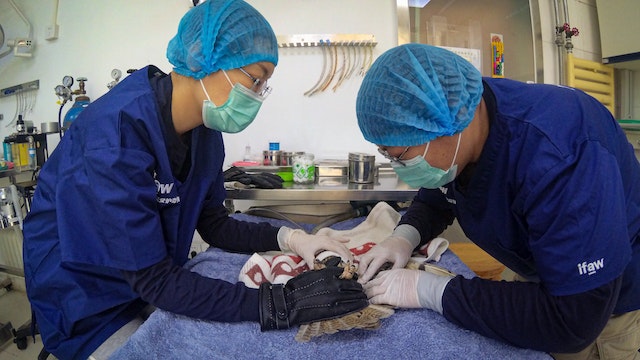
5 Benefits of Being a Veterinarian
1) Veterinarians get to help sick animals feel better and return to good health. This can be extremely gratifying work, knowing that you’re making a direct positive difference in an animal’s life.
2) As veterinarians gain experience, they often develop close relationships with the pet owners they see regularly. These bonds can be very rewarding, as they’re based on trust, mutual respect, and a shared love of animals.
3) Veterinarians are often called to the scene of an emergency when a pet is suffering. They know they can make a difference in these cases, and it can be very rewarding to help pets and their owners through these tough times.
4) Veterinarians may be called on to testify in court or perform autopsies to determine the cause of death in a pet whose owner has been accused of abuse.
5) Veterinarians may have to euthanize a pet whose suffering cannot be relieved. It s tough, but it s sometimes necessary to put an animal out of its misery. There is a lot of responsibility that comes with the territory.
What is interesting about a vet
A career as a veterinarian can be very rewarding. You get to work with all types of animals and help them stay healthy and happy. But, it’s not just about playing with puppies all day.
There is a lot of science involved in being a vet. Did you know that vets have to complete four years of undergraduate studies before they can even apply to veterinary school?
And then, once they’re accepted, they have to complete another four years of schooling.
So, when you take your furry friend to the vet, you can rest assured that they are highly educated and qualified to care for your animal companion.
Vets see a wide variety of animals in their career, from the tiniest hamster to the largest horse and other farm animals. But did you know that vets also treat some non-traditional pets?
For example, did you know that many vets have experience caring for snakes? Did you know that there are more than 70 different types of snakes in North America alone?
And did you know that some vets have even worked with a snake known as the king cobra?
Do vets specialize
The veterinary field is fascinating in its variety. There are many different types of vets, each with its specializations. Vets can specialize in small animals, large animals, wild animals, or even exotics.
They may also choose to focus on a particular area of medicine, such as surgery or dentistry. Veterinarians must complete four years of undergraduate study before attending veterinary school.
Veterinary school is a four-year program that culminates in a Doctor of Veterinary Medicine (DVM) degree.
After graduation, vets must pass a state licensure exam and attain a state license before they can begin practicing. Some states also require continuing education for licensure renewal.
The veterinary field is extremely rewarding, but it can also be demanding and challenging. Vets must be able to handle difficult situations and make tough decisions.
What’s Internal Medicine
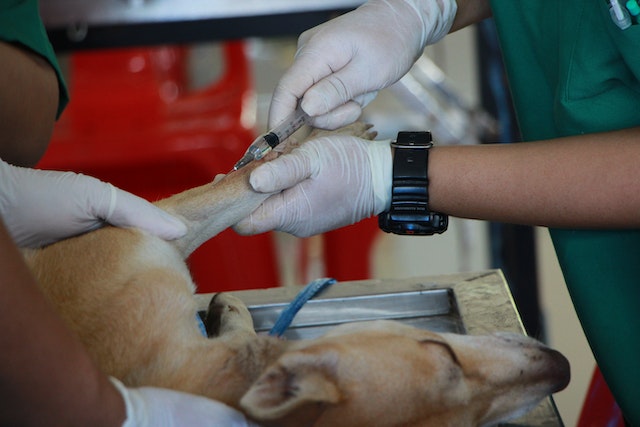
If you’re considering a career in veterinary medicine, you may be wondering what the field of internal medicine is all about.
Internal medicine is concerned with the diagnosis and treatment of diseases of the internal organs, such as the heart, lungs, and kidneys. It also deals with disorders of the blood and immune system.
Veterinarians who specialize in internal medicine are often involved in research to develop new treatments for various diseases.
They may also teach at veterinary schools or work as consultants to other veterinarians. If you’re interested in a career in veterinary medicine, internal medicine is a great option to consider.
With its focus on the diagnosis and treatment of serious diseases, it’s an important part of keeping animals healthy and happy.
Interesting Facts About Veterinarians
Who was the first vet
It is difficult to know the answer to this question, but it is said to have been Urlugaledinna. He or she lived in Mesopotamia in 3000 BC.
Also, there was an Egyptian named Imhotep was is named the first veterinarian. Imhotep was a royal physician who lived around 2600 BC.
He is credited with being the first person to use surgery to treat patients with deformities and injuries, as well as being a pioneer in medicine and anatomy.
In the United States, the first veterinarian was Phillip Wilson, who graduated from Glasgow Veterinary College in 1844.
Wilson is also believed to be the first African American to earn a degree in veterinary medicine. After graduation, Wilson settled in Cincinnati, Ohio, where he established a successful practice.
Today, there are more than 80,000 veterinarians in the United States alone. Veterinary medicine is a popular career choice for animal lovers and those interested in science and medicine.
If you’re considering becoming a veterinarian, know that it’s a demanding but rewarding profession that offers opportunities to help animals and their owners in many different ways.
Who is the most famous vet
There are many famous veterinarians, but the most famous one is Dr. James Herriot. He was born in Scotland and became a veterinarian in the 1930s.
He wrote a series of books called “All Creatures Great and Small” which were based on his experiences as a vet. The books were very popular and were made into a TV series in the 1970s.
Herriot was also a pioneer in the field of animal welfare, and he helped to establish the World Society for the Protection of Animals.
He became a member of the Royal College of Veterinary Surgeons in 1939, and he was awarded an OBE in 1975.
5 Key Skills You Need for a Career as a Veterinarian
Nearly every animal lover has, at some point in their life, dreamed of becoming a veterinarian. The idea of being able to help sick animals and be surrounded by furry friends all day sounds like a perfect career.
However, becoming a veterinarian requires more than just loving animals. Here are five key skills you need for a career as a veterinarian:
1. First and foremost, veterinarians must have excellent communication skills. They need to be able to explain medical procedures and conditions to pet owners in a way that is easy to understand. They also need to be able to listen to pet owners describe their animals’ symptoms and concerns
2. Plus, Veterinarians must be able to handle stress well. They will see sick animals every day and sometimes have to make the difficult decision to put an animal down. This can be very difficult for the veterinarian and pet owner.
3. Also, Veterinarians must be able to think quickly on their feet. If an animal is injured, the veterinarian must determine if it needs to be put down immediately or if it can wait until a later time. The veterinarian must also ask the pet owner questions about their animal and try to figure out what happened.
4. Veterinarians must be able to deal with a variety of different personalities. Some pet owners are very aggressive and some are very nervous. Some pet owners are just happy to see their pets get treated and will offer the veterinarian food or drinks.
5. Importantly, Veterinarians must have a good memory. They must remember what each animal’s medical history is and what their health problems are, such as what medication the animal may be allergic to.
What 5 things do vets do
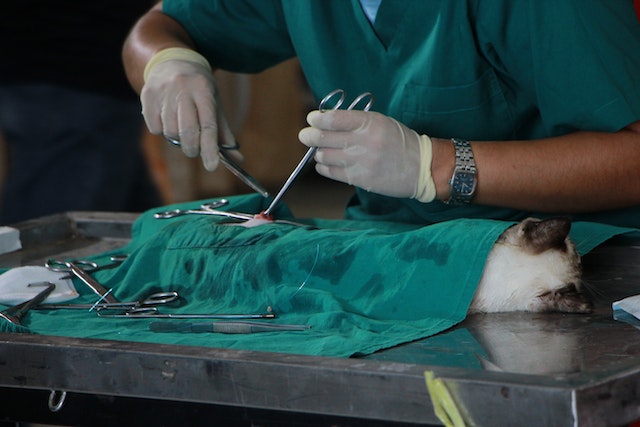
Veterinarians are medical professionals who care for animals. They diagnose and treat animal health problems, prescribe medications, and perform surgeries.
There are about 84,000 veterinarians in the United States. The majority of vets work in private practices and hospitals, but some also work in zoos, wildlife parks, racing tracks, farms, animal shelters, and research laboratories.
Here are 5 things that vets do
1. Vets examine animals to assess their health and identify any problems. They take the animal’s history into account and may order tests such as bloodwork or x-rays.
2. Importantly, Vets diagnose diseases and injuries by reviewing test results and examining the animal’s symptoms. They then develop a treatment plan which may include medication, surgery, or other therapies.
3. Vets prescribe medications for animals with infections or illnesses. They also prescribe nutritional supplements, such as vitamins and minerals, for animals that need extra support.
4. Also, Vets perform surgery on animals who are injured or sick. This can include spaying and neutering pets, removing tumors, and repairing broken bones.
5. Further, Vets counsel pet owners about disease prevention and food safety for their animals. They may also provide information about animal behavior, training, and breeding.
Veterinarians and the federal government
Veterinarians are often on the front lines when it comes to animal health and welfare. They work with a variety of animals, from domestic pets to livestock, and often have to deal with complex medical cases.
The federal government recognizes the importance of veterinarians in protecting public health and has several veterinary programs in place to support them.
For example, the Department of Agriculture’s Animal and Plant Health Inspection Service employs veterinarians to help prevent the spread of disease among animals.
Veterinarians also play an important role in research into new diseases and treatments. The National Institutes of Health funds many veterinary research projects each year, working to improve the health of both humans and animals.
What Are Veterinary Technicians
Veterinary technicians, otherwise known as vet techs are an important part of the veterinary team. They are trained to perform many of the same tasks as veterinarians but under the supervision of a licensed veterinarian.
Plus, Veterinary technicians usually have an Associate’s degree or certificate from a vocational school. Many states require veterinary technicians to be licensed.
Veterinary technicians play a vital role in the day-to-day operations of a veterinary practice.
They are responsible for much of the veterinary care daily, including taking medical histories, basic research, performing physical examinations, and administering vaccinations.
They also assist with diagnostic testing, surgery, and dental care. At hospitals and vet clinics, veterinary technicians may be responsible for taking x-rays or performing lab work.
Some veterinary technicians specialize in caring for specific types of animals, such as dogs, cats, birds, reptiles, horses, or cattle.





2 Comments
Pingback:
Pingback: